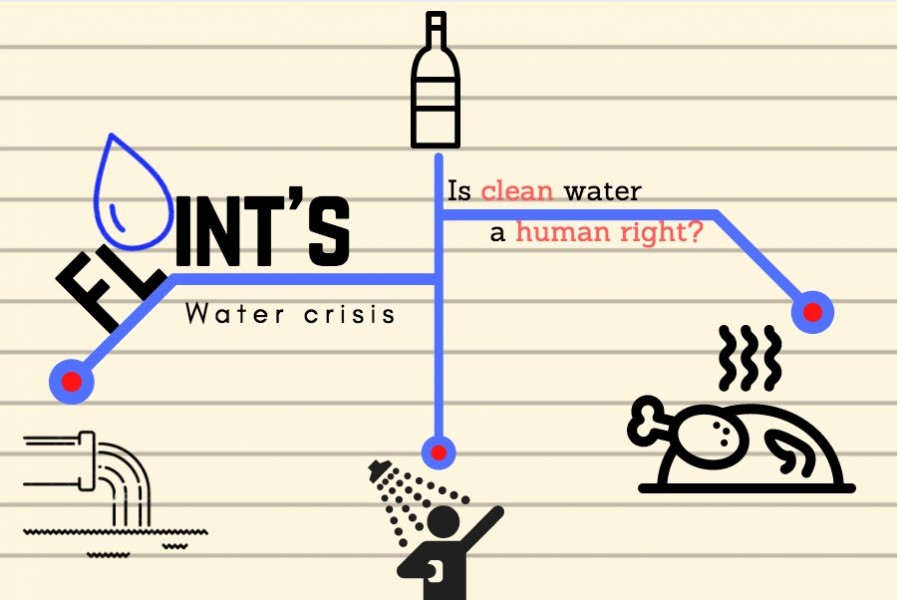Flint water crisis rooted in environmental racism

Clean drinking water is a simple necessity about which residents of urban areas in the U.S. do not typically have to worry. For residents of Flint, Michigan, however, clean water can be difficult to access.
Flint is a majority-minority community, which means there are more people who identify as non-white than white living in that area. According to the U.S. Census Bureau, 56.6 percent of Flint is African-American. The city is also a low-income area, with a median income of $24,862.
For several years now, the drinking water in Flint had been exposed to a great deal of toxins that are harming the organisms in and around it. In the last three years, the city government has had to issue advisories for fecal coliform bacterium, byproducts of disinfectants and lead found in the drinking water supply. Though the current lead levels meet federal guidelines, it took about three years to get to that point.
We just want to remind you all after Irma and Harvey,
Flint Michigan still doesn’t have clean water since 2014.
Sincerely, pic.twitter.com/yia21MGv2e— ALT Immigration (@ALT_uscis) September 13, 2017
This was an avoidable problem. The city and the contractors involved with building the drinking water infrastructure could have included a water treatment that would have prevented lead poisoning in the water. This easy solution was not implemented because, despite the major public health concerns a lack of clean drinking water causes, city officials in Flint failed to prioritize the situation before it was too late.
The neglectful treatment of the water is an act of environmental racism and perpetuates inequality along racial and socioeconomic lines. This brand of racism born from environmental factors is not unique to Flint, as signs of environmental racism are evident in multiple areas of the U.S. When states and private contractors fail to maintain areas with high minority populations, they leave these populations vulnerable to disasters like what is occurring in Flint.
Environmental racism can happen anywhere, including New Orleans. The city’s inability to maintain drainage pumps is, in part, what led to the massive flooding of multiple areas in the city over the summer.
No city should have to face the kind of environmental and public health atrocity that Flint is enduring. While some Tulane students panicked over the Boil Water advisory earlier this week, we must remember that Flint has endured for almost three years without access to clean water.
We live in a time when low-income individuals in the U.S. have to struggle for basic human necessities, like housing and healthcare. Something as fundamental as safe drinking water should not be another source of worry.
Your donation will support the student journalists of Tulane University. Your contribution will allow us to purchase equipment and cover our annual website hosting costs.


















Leave a Comment